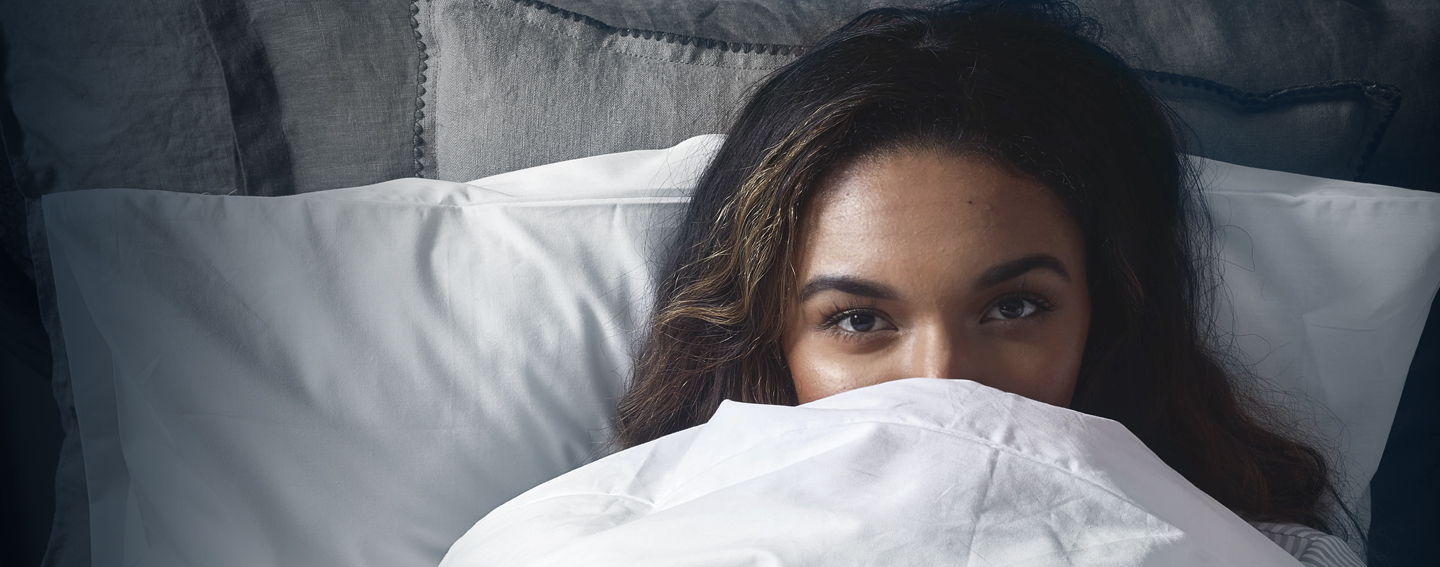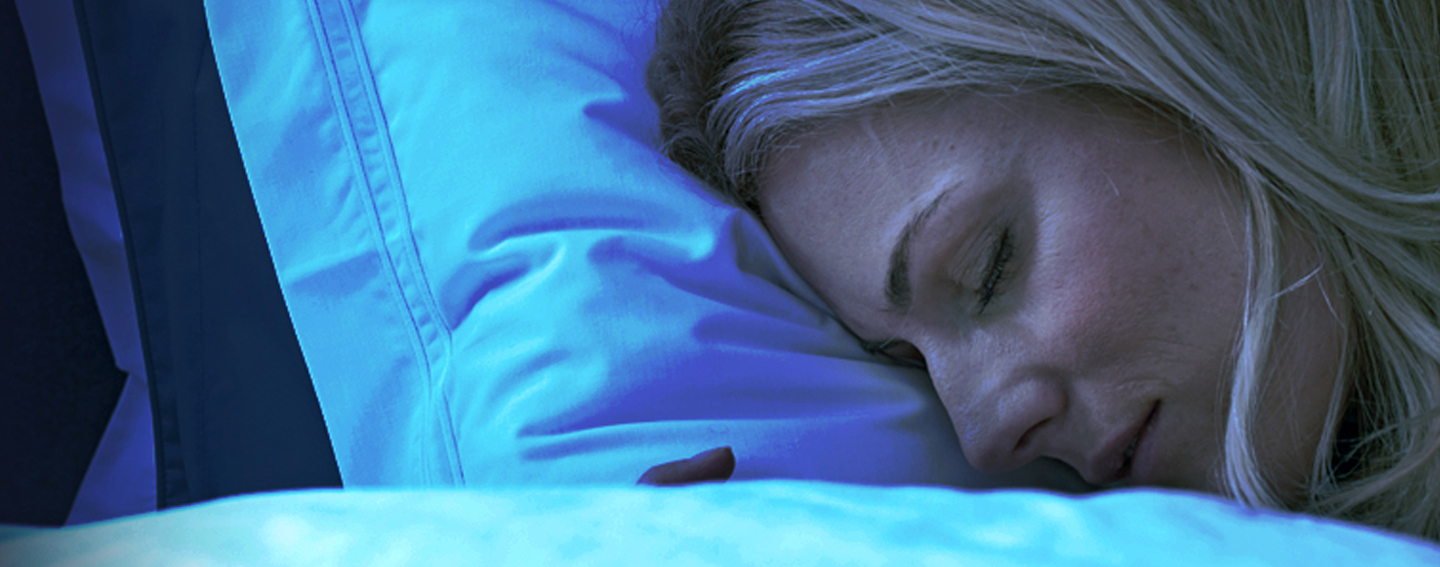Can allergies affect sleep?

Can allergies make you tired? In short, yes they can. Some people often experience fatigue, drowsiness and sluggishness, as well as the regular symptoms. But when suffering from allergies at night, they can disrupt your sleep and leave you feeling tired during the day. And according to Allergy UK, 44% of UK adults now suffer from some sort of allergy, making the need for advice greater than ever. Discover some of the allergies and sleep issues below, as well as some top tips for combatting allergies at night.
Sleeping with allergies
Getting enough sleep is crucial to maintaining good health and wellbeing. But for anyone who suffers from allergies such as rhinitis, asthma or eczema, sleeping all the way through the night can prove to be a frustrating task.
Are you suffering from an allergic cough at night? Experiencing mattress allergy symptoms? While night-time allergies can come in many different forms, common symptoms include:
- Difficulty breathing
- Coughing and wheezing
- Itchy skin
- Feeling hot and irritable
Child allergies at night
Parents aren’t the only ones who suffer from allergies when sleeping – child allergies at night are also common amongst babies, toddlers and children of all ages. The symptoms are common, though they’re nothing to worry about. But if you’re looking for more advice on child allergies at night, check out our guide to baby dust might allergy symptoms.
Tackling allergies when sleeping
When it comes to tackling your allergies at night, there are three steps you can take:
Identify your allergy type: Do you already suffer with asthma or eczema, or could this be an undiagnosed allergy? Speak with your GP if you are experiencing new allergies and sleep issues but haven’t previously been diagnosed.
Understand the trigger: What are the main causes of your allergy? Is it dust mites, pet hair, pollen, stress? Do you have mattress allergy symptoms? It is possible to have several triggers for a single condition – for example, you may be allergic to both pet hair and pollen. Keeping a sleep diary can help you identify possible triggers.
Avoid or minimise exposure to the trigger: How can you avoid or limit contact with the trigger? The steps to take will depend on your specific trigger, but anything from changing your mattress and bedding, to keeping pets out of the bedroom will help relieve the symptoms for sleeping with allergies.
Wondering what helps with allergies at night? Looking to alleviate your mattress allergy symptoms? With Woolroom, you can find the best mattress for allergies and asthma at night. As the properties of wool are hypoallergenic, a new wool mattress won’t necessarily conquer your allergies and asthma entirely, but it will certainly help relieve some of your night-time allergies and sleep issues.

Common allergies at night
Asthma and sleep
According to Allergy UK, over 300 million people in the world suffer from asthma. Asthma at night has a number of triggers, ranging from exposure to allergens (such as dust mites) to simply lying flat in bed.Learn more about Sleep and Asthma.
Eczema and sleep
Statistics from Allergy UK show that cases of eczema are on the rise in both children and adults. Like asthma, eczema at night also has its triggers. From high temperatures in bed to simply being less distracted, sufferers may become more aware of their skin itching and find it more difficult to get to sleep.Learn more about Eczema and Sleep.
Hay fever, allergic rhinitis and sleep
Have you ever woken up with a runny nose, watery eyes or even a case of the sneezes? You may have allergic rhinitis, triggered by dust mites. It’s easy to confuse the symptoms of allergic rhinitis with seasonal allergies such as hay fever: however, the key thing to remember is that while hay fever comes and goes with the seasons and fluctuates with the pollen count, perennial allergic rhinitis can last all year round.Learn more about the difference between hay fever and allergic rhinitis.

Common allergies when sleeping and their triggers
Common triggers for night-time allergies include:
- Dust mites: Dust mites are tiny creatures no bigger than a millimetre in length. They like warm, humid areas inside the home, which is why your bedding can be the prime place for them to colonise. As a result, your exposure to dust mite allergies at night is likely to be higher, resulting in night-time allergy symptoms such as sneezing, coughing and itching.
- Fungal spores: Much like dust mites, fungal spores need a warm, moist environment to thrive. The synthetic filling found in many types of bedding provides this to them, resulting in increased exposure to allergies when sleeping.
- Pet hair: While pet hair can find its way into every room of the house, allowing your fluffy friends to sleep on your bed can increase your exposure to this allergen at night.
- Pollen: Sleeping with a window open may help you keep cool, but it can also allow pesky pollen to enter your bedroom, increasing hay fever symptoms at night.

Combating allergies at night
So, what helps with allergies at night? Once you’ve identified the trigger for your night-time allergy, the next step is to limit your exposure to it. Here are our top tips on how to sleep with allergies:
- Swap to hypoallergenic bedding: If you suffer from a fungal spore or dust mite allergy, consider changing to wool bedding. Wool is naturally resistant to these tiny creatures, keeping them out of your bedding and helping to alleviate your symptoms.
- Harness the power of wool in your mattress: Bring additional hypoallergenic benefits to your bed by switching your synthetic mattress for a wool mattress, providing one less place to harbour dust mites and mould spores in the bedroom. Thanks to its natural hypoallergenic qualities, wool makes for the best mattress for allergies and asthma.
- Keep windows closed: If pollen is your trigger, use a fan to keep cool at night instead.
- Provide pet beds: Keep cats and dogs out of the bedroom to limit your allergen exposure at night. Instead, give them designated pet beds to encourage them to sleep in their own space. Training and patience may be needed to help them adapt to their new routine!
- Avoid synthetic carpets: Choose 100% wool or wood for your bedroom floor. This will mean one less place where mould spores and dust mites can hide, providing you with a healthier sleeping environment.
- Focus on relaxation: Did you know that stress can make allergy symptoms worse? By creating a calming environment in your bedroom, you’ll be able to drift off to sleep more easily. Techniques such as meditation, playing a soothing soundtrack and keeping TVs and other electronic devices out of the bedroom can all help.

Struggling to sleep? Fed up of experiencing allergy flare-ups at night? If you’re looking for more information about night-time allergies or seeking advice about wool bedding options, discover more helpful tips on allergies at night with our Sleep Health & Advice Hub. Display Options: Article Status Show / Hide Hide Title Hide Breadcrumb Hide Left Column Separate Link Locations Per Site Mode Include in Predictive search Include in Google Sitemap XMLs Published (ON) Shown (ON)